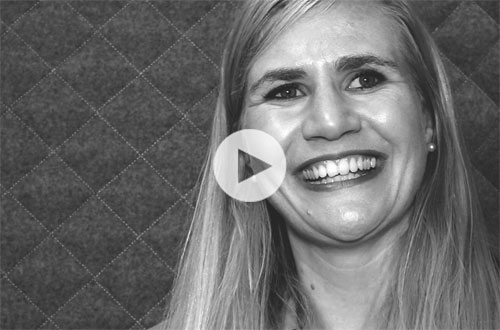
The past several years have seen an increasing number of startups taking on Africa’s financial services industry, largely driven by the lack of access to financial services faced by a large portion of the continent’s population with research by the IMF showing that 80% of Africans don’t have a bank account but that an overwhelming majority have access to a cellphone.
In an interview with Quartz Africa last month techpreneur Vinny Lingham said there’s good reason for banks to be afraid, referring to the disruption taking place in the sector.
The South African serial techpreneur who recently launched his blockchain startup, Civic, is based in Silicon Valley. “I think the banking sector in Africa is going to be disrupted faster than anywhere else in the world,” Lingham said.
The sector has also seen a flurry of investments in African startups including South African-based Zoona founded by brothers Brad and Brett Magrath. The money transfer company which operates primarily in Zambia focusing on unbanked and low-income consumers received nearly US$4 million in funding from The Omidyar Network, Accion Frontier Investments Group and Sarona Asset Management Fund.
Nigeria’s Paga in 2015 closed a US$13 million Series B funding round. Founded in 2009, Paga provides Nigerians with safe and convenient ways of making payments.
Further demonstrating the incredible potential of fintech, the World Bank last year reported that fintech startups are leading the way in helping to bridge a $2 trillion funding gap for millions of small and medium-sized enterprises (SMEs) seeking credit to grow their business.
Even traditional banks are also taking notice, Barclays Africa last year launched its fintech accelerator Rise, to facilitate collaboration and fintech innovation on the continent. Rand Merchant Bank in the same year launched AlphaCode, a hub for financial services entrepreneurs.
An exploration of the fintech landscape
To discuss opportunities and challenges that exists in the sector we spoke to three industry insiders at the recently held Simodisa event discussing scaling a business in South Africa’s fintech industry.
Dominique Collett is an influential player in South Africa’s innovative fintech scene. She is a financial services investor and a senior investment executive at Rand Merchant Investment and heads up AlphaCode, the firm’s hub for fintech startups.
Collett has an entrepreneurial background and successfully exited a successful fintech startup she co-founded, Tyme (acquired by the Commonwealth Bank of Australia for a rumoured ±USD 30 million)
Jason Goldberg is the co-founder of Edge Growth, a company specialising in enterprise and supplier development, SME growth and BEE compliance. Goldberg is also the CIO of Vumela, a social venture capital fund Edge Growth manages in partnership with one of SA’s big four banks. He is responsible for the recently launched 10x-e, a programme targeted at high growth entrepreneurs.
Community manager of AlphaCode, Chipo Mushwana is an entrepreneurship activist, with a keen interest in the fintech space.
Some of the areas fintech entrepreneurs should be looking at are data analytics, blockchain, socialisation of finance and platforms that will help with financial inclusion on the continent, says Mushwana. To take advantage of these opportunities industry knowledge will stand you in good stead, adds Collett.
One of the biggest challenges to entering the sector are regulatory barriers, adds Mushwana. However, the shallow talent pool doesn’t make it easy for fintech startups, as most of the talent is sitting in corporate, says Collett.
“You know you are ready to scale when you’ve started to see some patterns, you’ve started to see some familiarity, you have started to get traction and some success with similar things,” says Collett.
The importance of having systems and processes is echoed by Goldberg who cautions that startups should only scale if it won’t break the business.
While every entrepreneur may have dreams of scaling, not every business can scale, argues Collett. This, however, doesn’t mean we should underestimate the contribution of SMEs to the local economy with SA’s over 1 million SMEs generating over R5 million in revenue.
Goldberg adds that gazelles or high-performing startups can be found in all sectors of the economy, and not all are disruptive, some are succeeding because they are performing with excellence at their core.






